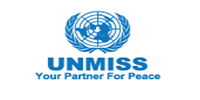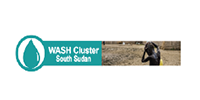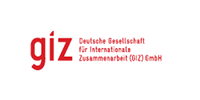They are considered to be of great importance for
the coming years as the Republic of South Sudan (RoSS) aims at building national capacity
at different levels to avoid dependency on International NGOs. NSDO will always strive at
working closely with concerned line ministries in project locations and at the head office level.
NSDO has a head office in Juba and field operations in Mundri, Maridi, Yambio, Kajo Keji,
Aweil and Terekeka. The first project intervention was a relief operation in response to the
humanitarian crisis resulting from the July 8-11, 2016 conflict in the Country.
Vision
An empowered and self-sustaining community enjoying quality of life.
Mission
Facilitate equitable development, co-existence and food security through community empowerment and capacity building for improved quality of life in the Country.
Motto
“Helping People to Help Themselves.”
Governing Structure
NSDO works in the context of Good Governance with a General Assembly and founders acting as a Supervisory Board and a Senior Management Team. The Supervisory Board supervises the quality of the board to fulfil the mission and vision of NSDO. In this context the Supervisory Board functions as an employer of the Director. The Supervisory Board also acts as sounding board/advisor for the entire Management Team and for each board member separately.
Core Values
The following six core values guide the work of the NSDO:
Service - we are committed to serving the people of South Sudan as their well-being
is our top priority.
Teamwork - we find strength in diversity and unity in a shared commitment to build
the nation. We do not let tribal, regional, or political differences become divisive. We
also partner with our stakeholders and build trust by listening to community and/or
beneficiaries.
Respect - we value staff and community contributions to our mission and treat each
other with courtesy and respect.
Accountability - we take responsibility for our actions, learn from our mistakes and
celebrate our achievements.
Integrity - we honour our country, communities, fami l ies, and o u r selves by
adhering to the highest standards of conduct. We endeavour to do what is right
even when no one is watching.
Problem-Solving - we expect staff and community to take initiative and to solve
problems and we empower them to do so.
Legal Registration
NSDO South Sudan is legally registered with Relief and Rehabilitation Commission (RRC) as a National Organization under Chapter 3, section 10 of NGOs Act 2016. The registration number is 091.The head office for NSDO South Sudan Program is located in Juba and oversees activities in the all field locations. The South Sudan Program is headed by the Country Director, supported by the, Program Manager, Finance Manager, Human Resource Manager, and Logistics and Procurement Manager. At the field level, the various project coordinators report directly to the Program & M&E Support Manager and the Program manager.
Senior Management Team
The Senior Management Team is responsible for running the key business of NSDO. The Senior Management team consist of Country Director, Program Manager, Finance Manager, Human Resource Manager and Logistics and Procurement Manager. The below organogram in Figure 1, shows the details of the management team and other staff.
















